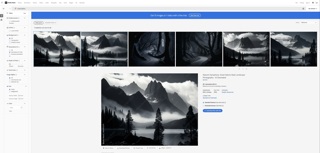Why the right wing fears climate action (not because they’re crazy)
Conservatives have drummed up unprecedented devotion to climate change denialism by invoking the specter of anti-capitalism, writes Naomi Klein in The Nation, and they’re not really wrong. Combating climate change will mean overhauling the free market economy and contracting the corporate sector, and people whose livelihoods depend on big business have a reason to be afraid.
Klein starts off with a deep dive into the climate denier psyche, and concludes that their intense opposition comes not from logical or scientific objections (how could it?) but from corporate-funded movements telling people that climate change mitigation threatens their personal comfort and freedom.
Climate change used to be something most everyone said they cared about—just not all that much. When Americans were asked to rank their political concerns in order of priority, climate change would reliably come in last.
But now there is a significant cohort of Republicans who care passionately, even obsessively, about climate change—though what they care about is exposing it as a ‘hoax’ being perpetrated by liberals to force them to change their light bulbs, live in Soviet-style tenements and surrender their SUVs. For these right-wingers, opposition to climate change has become as central to their worldview as low taxes, gun ownership and opposition to abortion.















